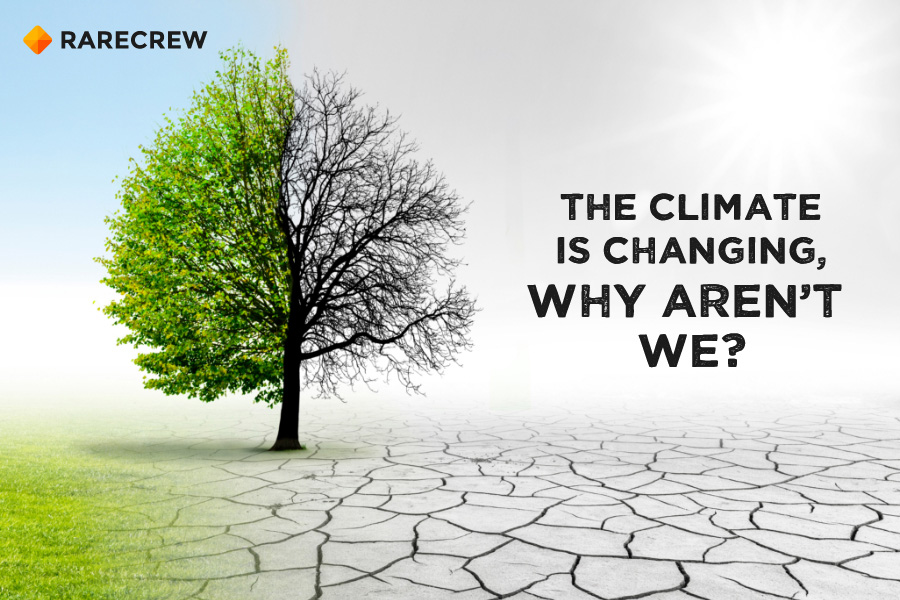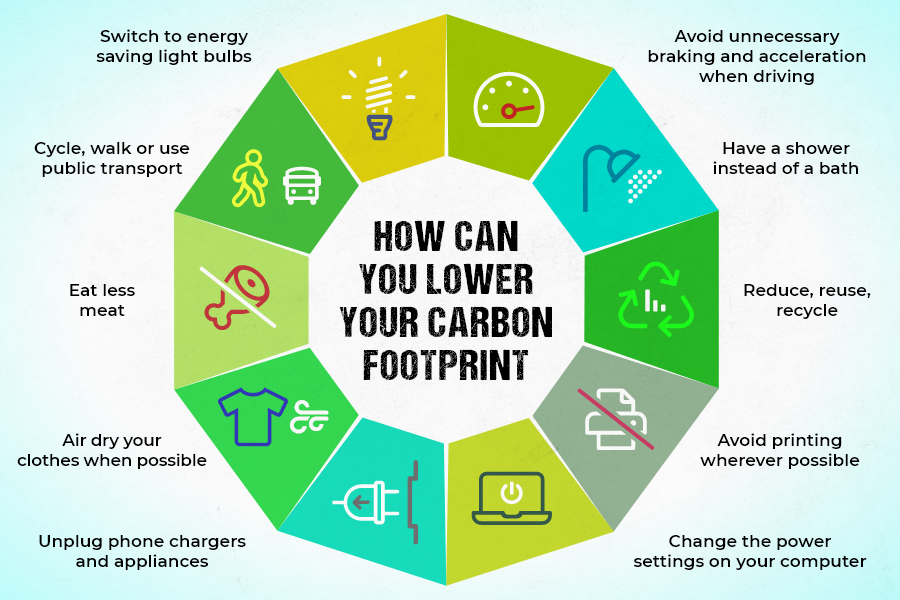
The climate crisis is an everyday reality that the world is experiencing. A growing number of governments are setting targets to end their contribution to global warming and reduce their carbon footprint.
The European Union is leading by example with their commitment to be climate and carbon neutral by 2050. The good news is that everyone can reduce their carbon footprint. Regardless of a company's shape, size and business sector, all companies face an ever-increasing number of challenges relating to their environmental performance.
.png)
We’ve taken steps to become an environmentally responsible company. By focusing on your local environment, even small steps will add up, slowly leading to change in an office, a neighbourhood, a community, maybe even in a whole city. You could act to reduce your own environmental impact, for example by consuming less energy or water.
Does it seem like a lot? Don’t worry, these changes are like a domino. Once you make the first change, all the other changes will follow.
Take for example, limiting transport via vehicles and combining it with the ‘Bike to work challenge’. You’ll see several positive effects:
- Motivating people to do something positive for their health
- Reduction in the number of vehicles on the road
- Less money spent on oil or maintenance (if you are cycling to work on a regular basis)
Going ‘green’ has so many benefits that it’s strange to think that some companies haven’t adopted an eco-friendly way of thinking.

How to lower your carbon footprint at home
Companies are made up of people – and for now, these people are mostly working from home. Let’s start with a few tweaks that you can make in your household.
Switch to energy saving light bulbs
Switching to energy saving light bulbs is simple, helps the environment and can reduce your bills. It makes a big difference as you could cut energy wastage by three quarters and save €9 on your electricity bill. Energy saving light bulbs last longer and use a fraction of the energy that a normal light bulb uses.
Have a shower instead of a bath
Showering is quicker, cleaner and more environmentally friendly than bathing. According to the Environment Agency, 5 minutes in the shower can use a third of the water for a bath. Baths can use up to 88 litres of water depending on their size.
Eat less meat
The global livestock industry produces more greenhouse gas emissions than all cars, planes, trains and ships combined. Eating less meat, or switching to lower impact meats such as chicken, eggs or pork is the most effective way for individuals to reduce their dietary footprint.
Air dry your clothes when possible
Air-drying clothes can reduce the average household’s carbon footprint by almost 1100kg a year. You should avoid using tumble dryers wherever possible as they use just over 4kWh of energy and produce around 1.8kg of CO2.
Avoid unnecessary braking and acceleration when driving
Harsh accelerating and braking can use up to 30% more fuel, lower your mileage and increase wear and tear of the vehicle.

How companies can reduce their carbon footprint
Companies have several factors to consider when they want to reduce their carbon footprint. One of them being the number of employees with bad habits. The best way to deal with it is to change the thinking of all the colleagues about the issue and approach it together.
Unplug phone chargers and appliances
By unplugging appliances when they’re not in use you can save money and send less carbon emissions into the atmosphere. Just because a device isn’t turned on doesn’t mean it isn’t using power. Appliances use up to 90% of their normal power in standby mode. This can be a serious problem serious when you are a company with hundreds of employees.
Turn off lights in unused rooms
Turning off the lights when you leave your room can help save energy, reduce carbon emissions and other harmful greenhouse gases. You can reduce greenhouse gas emissions by €0.17 per hour. Some companies invest in photosensors in corridors, so some spaces are only illuminated when it’s necessary.
Reduce, reuse, recycle
Throwing things away is a waste of the energy and the resources taken to make the product. Reducing the number of things that need to be thrown away, reduces the amount of materials which have to be quarried and mined.
By reusing a product, you’re extending its cradle-to-grave life cycle. As a result, there’s no need to create a new item from scratch which will reduce the emissions caused by its incineration or by sending it to a landfill.
Recycling reduces the need for extracting, refining and processing raw materials, all of which create air and water pollution. Recycling saves energy and reduces greenhouse gas emissions, which helps to tackle climate change.
The most common example of reducing consumerism and reusing resources is found in printers – you can refill your cartridges. Do this instead of buying another plastic cartridge and throwing away the old one.
Avoid printing wherever possible
Apart from cartridges, printing itself can be a problem. At most businesses, paper is a huge source of waste. The wasting of paper leads to demand for even more paper. The demand for more paper leads to deforestation. Paper production adds a significant amount of pollution to our atmosphere. Paper mills frequently release harmful gases such as CO2 and Nitrogen Dioxide into the atmosphere when producing.
You can always invest in recycled paper. Although recycled paper can be more expensive than new office paper, it’s more environmentally friendly. So, if you can’t print less, maybe change the medium that you’re printing on. Be sure to let people know about it. With this approach, your environmental consciousness can bring a positive PR effect.
Change the power settings on your computer
Use built in power options to enable power saving features such as machine standby, monitor standby and hard disk standby. This means when your computer isn’t being used for a period of time, energy can be saved via standby mode.
Carpool, cycle, walk or use public transport to get to work
Avoid using your vehicle when travelling to work if possible. By having one less vehicle on the road, you can reduce the greenhouse gases that are emitted.
Let’s make a positive environmental change together
These are just a few tips that you and your company can apply to your daily working routine. Small changes can make a big impact, but only when it’s done right and by several companies. Let’s make a positive impact on the environment and reduce our carbon footprint. In the end, it’s in our best interests.
